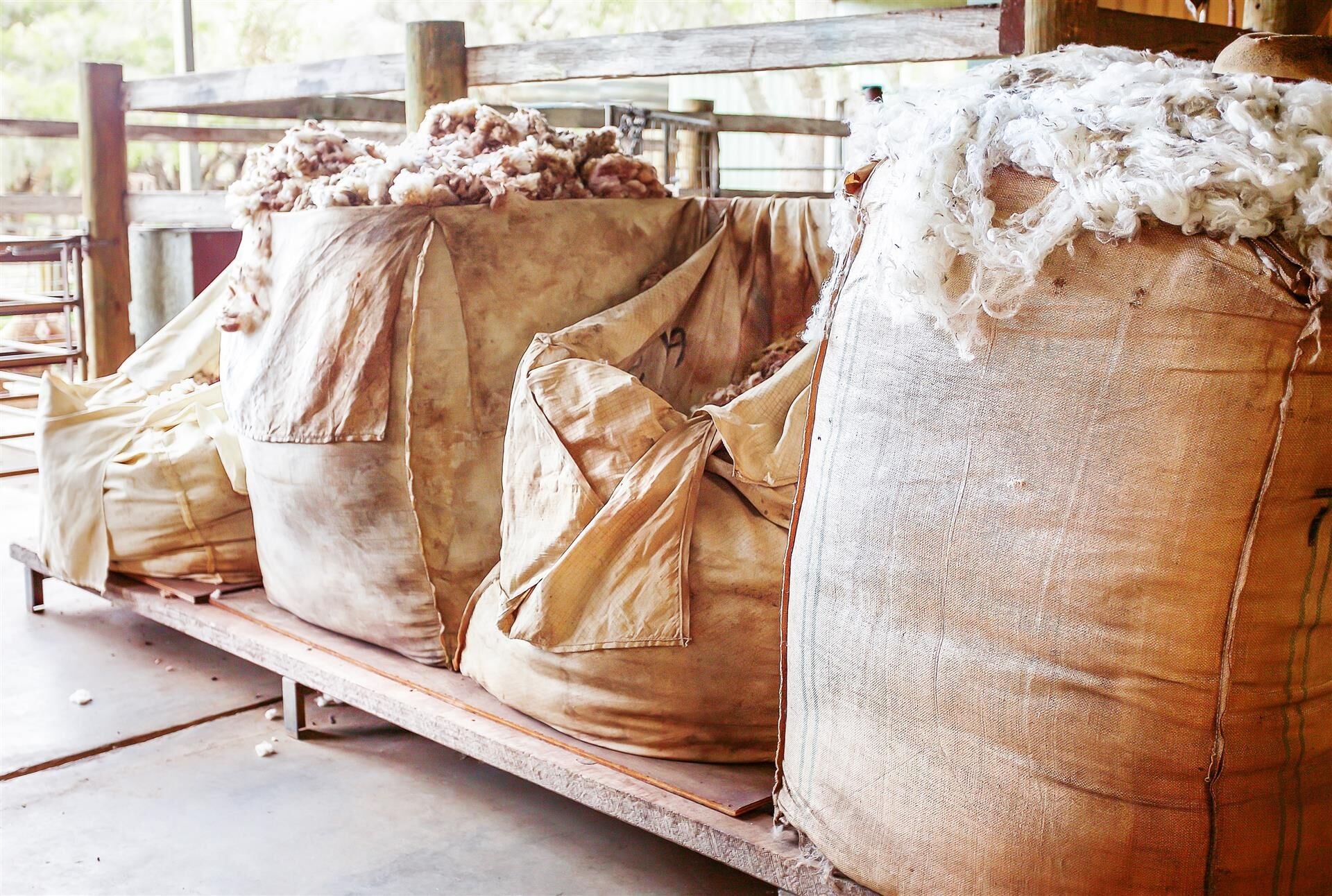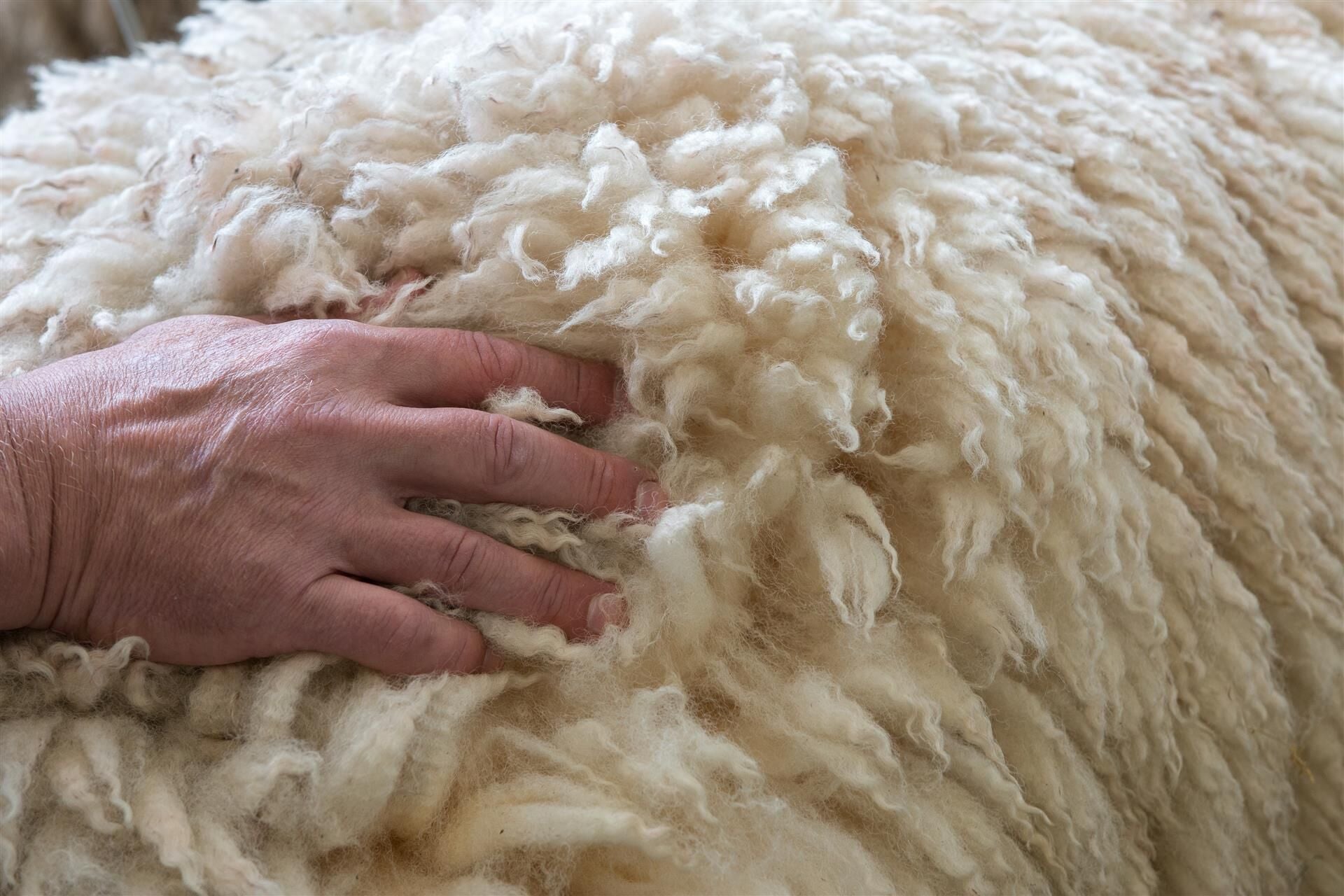Wool options open up with research.

But it is a phrase that today could only be repeated to a select few sheep farmers who are providing high value Merino wool for a variety of fashion uses.
Meantime their coarse wool farming cousins will ruefully admit for them wool has often become more of a bothersome by-product of red meat farming, rather than a valued component of farm income.
While Merino wool has become the “go to” fibre for fashion designers and clothing manufacturers, coarse wool has proven a more challenging fibre to process and market effectively.
However this is starting to change thanks to some quiet behind the scenes research that is delving deep into wool’s composition and coming up with some innovative, sustainable and flexible options for future use.
Thanks to work by the likes of AgResearch and innovative corporates the applications for coarse wool in the future look likely to extend well beyond simply employing it as a fibre for clothing, carpet or coverings.
AgResearch scientists have been looking well outside this square when it comes to identifying options for wool use. Work done by scientists at Lincoln has identified wool sourced proteins that can have some health benefits for pets, and possibly humans.
Researchers have found that wool’s 95% protein composition means it could prove to be a good food source in a world seeing ever growing demand for protein options to feed a growing population.
Scientists have come up with a process that can extract 85-95% of wool’s proteins which also contain valuable fibres that encourage gut microbe growth.
“Scientists have come up with a process that can extract 85-95% of wool’s proteins which also contain valuable fibres that encourage gut microbe growth.”
So far their work has found the protein-fibre source works well for cats and dogs, with international food companies keen to incorporate them as ingredients in pet food. For human use scientists are exploring the options as a dietary additive, while other compounds are also being found that may have human health benefits.
Meantime thousands of kilometres up in space nothing would seem more earthbound than sheep, but opportunities for wool appear unbound by gravity.
Auckland firm Lanaco is now at the leading edge of filtration technology where New Zealand sheep’s wool forms the final saviour for astronauts dealing with their worst nightmare- a fire in their space capsule.
The company’s wool based Helix filter is designed to filter out hot melted particles that may clog up astronaut’s life support systems after surviving a fire.
It is the same particle technology the company developed for its face masks popular in pollution dense Asian cities.
The company has received the thumbs up from NASA to trial the Helix for use in the next generation Orion space capsules.
While this particular filter’s wool is sourced from a special breed of sheep with a specially developed fibre length, the company is also making other filters from coarse wool fibres.
In a world seemingly choking in tonnes of plastic waste, wool’s positive environmental benefits are also starting to be better understood by researchers. Researchers have found thousands of plastic microfibers are released into waterways from washing synthetic garments.
Of the 12.5 million tonnes of plastic flushed into oceans every year, 3.2 m tonnes are less than 5mm wide and are becoming part of the marine, and ultimately human, food chain.
With its high carbon content, wool is proving to be ideally suited for replacing plastics in many applications, while also capable of breaking down as a compost component, with no environmental damage resulting.
“Wool is proving to be ideally suited for replacing plastics in many applications, while also capable of breaking down as a compost component, with no environmental damage resulting.”
Meantime Landcorp farm houses around the SOE’s South Island farms are due to be wrapped in wool as part of a home insulation upgrade.
Landcorp is working with Christchurch company Terra Lana sourcing acoustic panels containing Pamu supplied wool.
Chief executive Steve Carden said wool’s benefits as an insulating material are significant, and a “no brainer” for a company that farms a lot of wool.
“All future insulation undertaken by Pamu will be done with recycled wool,” he said.
